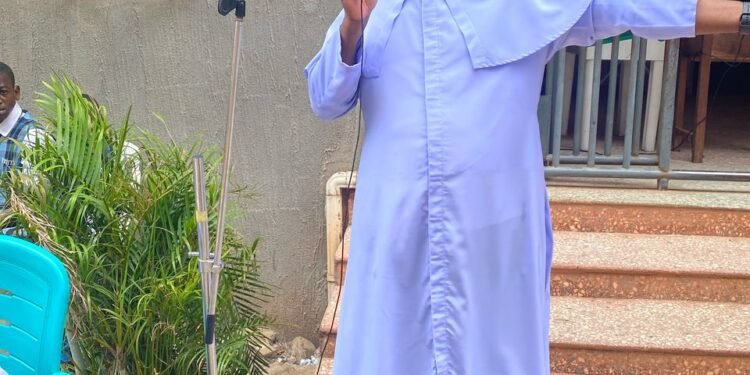“One of the major reasons for education is that it must be geared towards solving problems,” declared Rev. Fr. John Ezeanowai, the dynamic manager of Trinity College, Onitsha, during an exclusive interview with Trinitas Press on the sidelines of the school’s maiden Skill Exhibition Day. His bold statement served as both a summary and a challenge — a call for educational institutions to redefine their purpose in the face of a changing world.
According to Fr. Ezeanowai, the modern-day relevance of education lies not merely in academic certification but in its ability to empower young minds with practical tools for innovation and survival. “It is no longer enough to just have degrees. We must produce students who can confront real-life problems with the skills they have acquired,” he said, outlining a vision of education rooted in problem-solving and holistic formation.
He explained that this vision led to the creation of a structured period for training and skill acquisition within the Trinity College academic calendar, with a special day dedicated to showcasing the students’ output. “We want to train the affective, cognitive, and psycho-motor domains of our students. This exhibition is a testimony to that goal,” he noted.
Fr. Ezeanowai emphasized that the initiative was not just about learning but about transformation. “While we may not achieve perfection with every child, our aim is to help each one become a better version of themselves,” he said. Students are currently being trained in a wide range of skills, including robotics, coding, shoemaking, culinary arts, hair and wig making, tailoring, and bag crafting — with some of their projects already attracting the interest of buyers and guests.
Reflecting on the day’s activities, which featured a tech-powered traffic light prototype, speech renditions in foreign languages, and a wide array of hand-made goods, Fr. Ezeanowai remarked that the excitement and enthusiasm from students, parents, and teachers alike was proof that the program had struck a chord.
He disclosed that deserving winners in each category went home with significant prizes, including laptops, microwaves, hair products, and more. Beyond the rewards, however, the manager sees a greater purpose. “We are equipping our students with what it takes to be self-reliant. This is what the future demands,” he stressed.
Fr. Ezeanowai also highlighted Trinity’s broader commitment to aligning with positive global trends in education, particularly in fostering creativity, innovation, and character. “Trinity is a model school, and we smile as we keep finding new ways to motivate our students. It is all about formation — total formation.”
To further inspire academic excellence, the school manager announced a one-year scholarship for any student who scores a 95% average in their cumulative assessments, reinforcing Trinity’s commitment to both brains and skills.
With plans to sustain and expand the skill exhibition in future editions, Fr. Ezeanowai reaffirmed his belief that the Archdiocesan educational system — from primary to tertiary level — must continue embracing innovation. “Every human being is a learner all through life. What we do now is plant seeds that will blossom in their future,” he concluded.











































